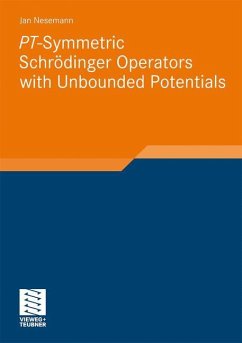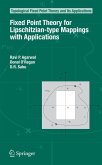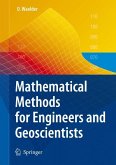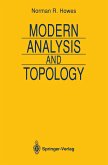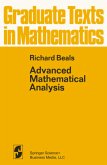The book offers a direct and up-to-date introduction to the theory of one-parameter semigroups of linear operators on Banach spaces. It contains the fundamental results of the theory such as the Hille-Yoshida generation theorem, the bounded perturbation theorem, and the Trotter-Kato approximation theorem, but also treats the spectral theory of semigroups and its consequences for the qualitative behavior.
The book is intended for students and researchers who want to become acquainted with the concept of semigroups in order to work with it in fields like partial and functional differential equations, stochastic processes, infinite dimensional control theory, or dynamical systems coming from physics or biology.
ThetheoryofstronglycontinuoussemigroupsoflinearoperatorsonBanach spaces, operator semigroups for short, has become an indispensable tool in a great number of areas of modern mathematical analysis. In our Springer Graduate Text [EN00] we presented this beautiful theory, together with many applications, and tried to show the progress made since the pub- cation in 1957 of the now classical monograph [HP57] by E. Hille and R. Phillips. However, the wealth of results exhibited in our Graduate Text seems to have discouraged some of the potentially interested readers. With the present text we o?er a streamlined version that strictly sticks to the essentials. We have skipped certain parts, avoided the use of sophisticated arguments,and,occasionally,weakenedtheformulationofresultsandm- i?ed the proofs. However, to a large extent this book consists of excerpts taken from our Graduate Text, with some new material on positive se- groups added in Chapter VI. We hope that the present text willhelp students take their ?rst step into this interesting and lively research ?eld. On the other side, it should provide useful tools for the working mathematician. Acknowledgments This book is dedicated to our students. Without them we would not be able to do and to enjoy mathematics. Many of them read previous versions when it served as the text of our Seventh Internet Seminar 2003/04. Here Genni Fragnelli, Marc Preunkert and Mark C. Veraar were among the most active readers. Particular thanks go to Tanja Eisner, Vera Keicher, Agnes Radl for proposing considerable improvements in the ?nal version.
Hinweis: Dieser Artikel kann nur an eine deutsche Lieferadresse ausgeliefert werden.
The book is intended for students and researchers who want to become acquainted with the concept of semigroups in order to work with it in fields like partial and functional differential equations, stochastic processes, infinite dimensional control theory, or dynamical systems coming from physics or biology.
ThetheoryofstronglycontinuoussemigroupsoflinearoperatorsonBanach spaces, operator semigroups for short, has become an indispensable tool in a great number of areas of modern mathematical analysis. In our Springer Graduate Text [EN00] we presented this beautiful theory, together with many applications, and tried to show the progress made since the pub- cation in 1957 of the now classical monograph [HP57] by E. Hille and R. Phillips. However, the wealth of results exhibited in our Graduate Text seems to have discouraged some of the potentially interested readers. With the present text we o?er a streamlined version that strictly sticks to the essentials. We have skipped certain parts, avoided the use of sophisticated arguments,and,occasionally,weakenedtheformulationofresultsandm- i?ed the proofs. However, to a large extent this book consists of excerpts taken from our Graduate Text, with some new material on positive se- groups added in Chapter VI. We hope that the present text willhelp students take their ?rst step into this interesting and lively research ?eld. On the other side, it should provide useful tools for the working mathematician. Acknowledgments This book is dedicated to our students. Without them we would not be able to do and to enjoy mathematics. Many of them read previous versions when it served as the text of our Seventh Internet Seminar 2003/04. Here Genni Fragnelli, Marc Preunkert and Mark C. Veraar were among the most active readers. Particular thanks go to Tanja Eisner, Vera Keicher, Agnes Radl for proposing considerable improvements in the ?nal version.
Hinweis: Dieser Artikel kann nur an eine deutsche Lieferadresse ausgeliefert werden.
"The previous book by these authors \ref[ One-parameter semigroups for linear evolution equations, Springer, New York, 2000; MR1721989 (2000i:47075)] in a short time has become an indispensable tool for graduate students and researchers working in the area of evolution equations. However, the sheer amount of information in that book often has made it difficult to navigate and find necessary information and, possibly, has discouraged beginners attempting to enter the field. The volume under review is, to a large extent, a streamlined version of the earlier book and is limited to topics which are essential to making first steps into the world of semigroups. In many cases the results are presented in a weaker version with modified, easier proofs. However, as the authors mention in the Preface, "to a large extent this book consists of excerpts taken from our graduate text"....Nevertheless, I thoroughly enjoyed reading this book and, in my opinion, it should have a necessary position on the bookshelf of any analyst working in operator theory and evolution equations." (Jacek Banasiak, Mathematical Reviews)



